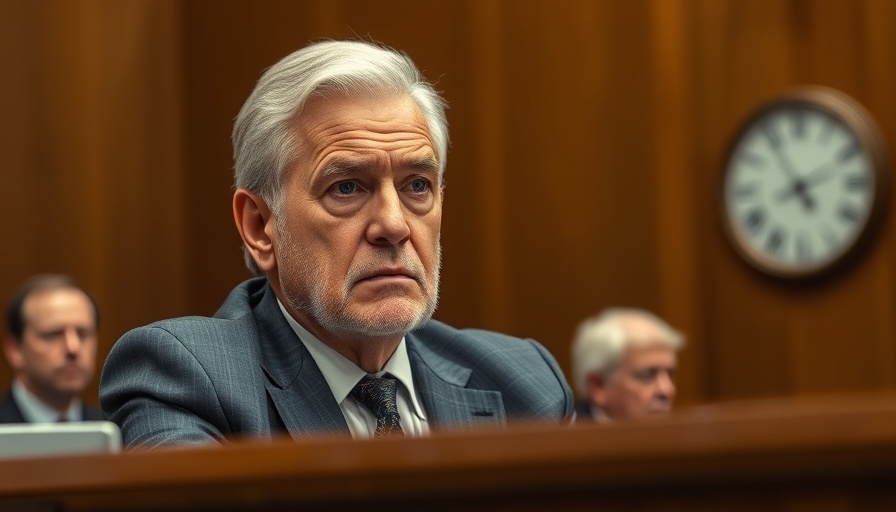
RFK Jr. and the Abortion Pill: What You Need to Know
In an era where women's reproductive rights are increasingly under scrutiny, the recent remarks made by Robert F. Kennedy Jr. regarding the abortion pill, mifepristone, have sparked concern among advocates and healthcare professionals alike. During a Senate hearing, RFK Jr. discussed his intention to investigate the safety of the widely used medication, a move that has disproportionately unsettled Massachusetts moms who make up a vital segment of the population affected.
The Safety Debate: Separating Facts from Fear
At the Senate judiciary committee meeting, RFK Jr. referenced data suggesting serious risks associated with mifepristone, claiming that a significant number of women experience severe complications post-ingestion. While such statistics sound alarming, it's essential to scrutinize the source. Critics quickly pointed out that the research cited by Kennedy came from a non-peer-reviewed paper, raising questions about its validity.
The FDA has established mifepristone's safety for over 25 years, citing it as less risky than many common medications like penicillin and Viagra. The overwhelming consensus among healthcare professionals is that abolishing access to mifepristone would have dire consequences, particularly for marginalized women who rely on medication abortions as an accessible healthcare option.
Historical Context: The Battle Over Reproductive Rights
The winds of change regarding reproductive rights are often turbulent. Knowing the history behind the abortion pill can empower Massachusetts moms to stay informed. After the FDA approved mifepristone in 2000, it became a cornerstone for those seeking abortions safely and effectively. Yet, as political tides shift, so do policies and protections surrounding access to this critical medication.
Active debates in both state and federal levels regarding women's rights have made it evident that what is available today might not be tomorrow.
The Emotional Impact: Understanding the Stakes
For many mothers, the conversation surrounding abortion is deeply personal. As RFK Jr. puts a spotlight on the abortion pill, we must acknowledge the emotional weight carried by those who have undergone abortions. This isn't just about politics; it's about real lives and the decisions women make in incredibly tough circumstances.
Deciding whether to carry a pregnancy to term can depend on numerous factors, including financial stability, physical health, and personal circumstances. Understanding the implications of limiting access to mifepristone can help mothers in the Massachusetts community feel prepared to advocate for their rights.
Actionable Insights: Empowering Your Voice
With healthcare policies evolving so quickly, knowing how to voice your concerns can stabilize the community's foundation. Advocating for women's rights, writing to representatives, or participating in local discussions can impact the discourse around reproductive health.
Moms must seek support from established advocacy groups that focus on reproductive rights. These organizations often provide resources that can help women navigate available options effectively.
Looking Ahead: The Future of Reproductive Healthcare
The future of mifepristone and by extension abortion access appears precarious. Despite the stark warnings posed by RFK Jr., advocates for reproductive rights remain vigilant, looking to safeguard access to safe healthcare for all women. The potential ban on mifepristone is not just about a single pill but reflects broader societal struggles over bodily autonomy.
As Massachusetts mothers continue to advocate for their rights, it’s crucial to remain engaged and educated on these subjects. Recognizing that abortion rights are inextricably linked to other human rights can create a more inclusive dialogue about women’s health.
 Add Row
Add Row  Add
Add 




Write A Comment